Philosophy Football’s Mark Perryman provides a handy reading guide for the 12th December general election.
There’s not much doubt politics is getting hot, hotter and hottest just as the nights draw in and get cold, cold and colder as Boris Johnson seeks to bring some kind of ending to the sorry saga of all things Brexit.
A December general election? The first at this time of year for goodness knows how long. And will it really sort out Brexit? Well the last one didn’t, and there’s absolutely no guarantee the result of this one will either, whichever way it goes.
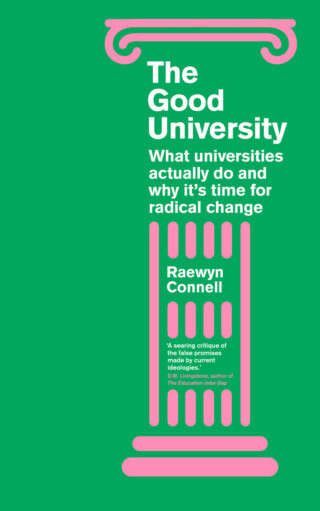
In the immediate aftermath of the 2017 general election, there was much talk that for Labour it was the manifesto that was responsible for the gains it made. Mike Phipps’ For The Many helps us understand the manifesto’s appeal and the ideas required to win this time. Most of the contributors to the essay selection Rethinking Britain are slightly more detached from the organised Labour Left than those contributing to Mike’s book though they share the same intent ‘for the many’, ranging over economics, employment, investment, and social security. One of the brightest voices for such a brand of ‘new’ economics is Grace Blakeley, her first book Stolen is a compelling account not only of all that’s wrong with how financial power is misused but also what could be done about it. The abolition of tuition fees was a vote-winner in 2017 and makes good sense, but surely we also need to ask what are universities for, not just how they’re being paid for. A good step in this direction is provided by Raewyn Connell’s The Good University, complete with a rather excellent sub-title ‘what universities actually do and why it’s time for radical change’. My favourite source for ideas in and around Labour however is the quarterly journal Renewal, issue after issue it never disappoints. The latest issue is themed around the topic of democracy with a stand-out essay by Lewis Bassett on the vexed question of democracy in the Labour Party.
Radical, new, policies broke through at Labour’s 2019 party conference including the 4-day week, abolition of private schools and a green new deal. Most of these have found their way into Labour’s 2019 manifesto, which is good. But the party continues to face the problem of how they are affected by the Brexit Impasse which isn’t going to disappear in a hurry, and hasn’t. And of course Labour’s antisemitism crisis will be an issue too. Strange Hate by Keith Kahn-Harris firmly and correctly puts the resolution of that crisis in the context of anti-racism. While for those unfamiliar with the specificities of Jewish culture, A Jewdas Haggadah provides a much-needed introduction with occasional hilarious results.
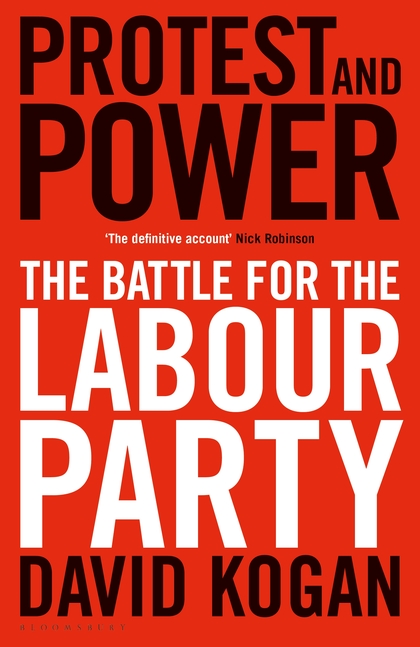
For a primer chronicling the history of the rise of Corbynism read David Kogan’s Protest and Power: The Battle for the Labour Party. As to what happens if Labour wins, Christine Berry and Joe Guinan’s People Get Ready! deals strategically with how Labour might govern while seeking to implement a post-neoliberal economic strategy unimaginably radical in its ambition. Wow.
But to get even close to that point Labour’s arguments for ‘real change’ need both to be made popular and to challenge a resurgent right-wing racist populism. J. A. Smith’s Other People’s Politics charts precisely this terrain via a rigorous deconstruction of the populist surge and what kind of response from Labour this requires.
Labour’s ‘Momentum Left’ is often derided as Marxist. In fact, it is overwhelmingly non-Marxist. Marxism no longer offers the pole of attraction for those who favour politics against the mainstream that it once did. In its place a greater range of models of critique have emerged. But that’s not to suggest it is dead, buried or irrelevant. The Corbyn Project by John Rees is testament to the necessity of a Marxist critique of even the most left-wing versions of reformism. We can choose to differ with the critique but to ignore it entirely is a serious error. The new edition of Tony Cliff and Donny Gluckstein’s classic, The Labour Party: A Marxist History, now updated by Charlie Kimber to take in both the Blair-Brown years and Corbynism, carefully records, from a Marxist standpoint, the errors Labour governments have made over the decades. Again, we can differ over the precise nature of the causes and consequences, but those causes and consequences need accounting for.
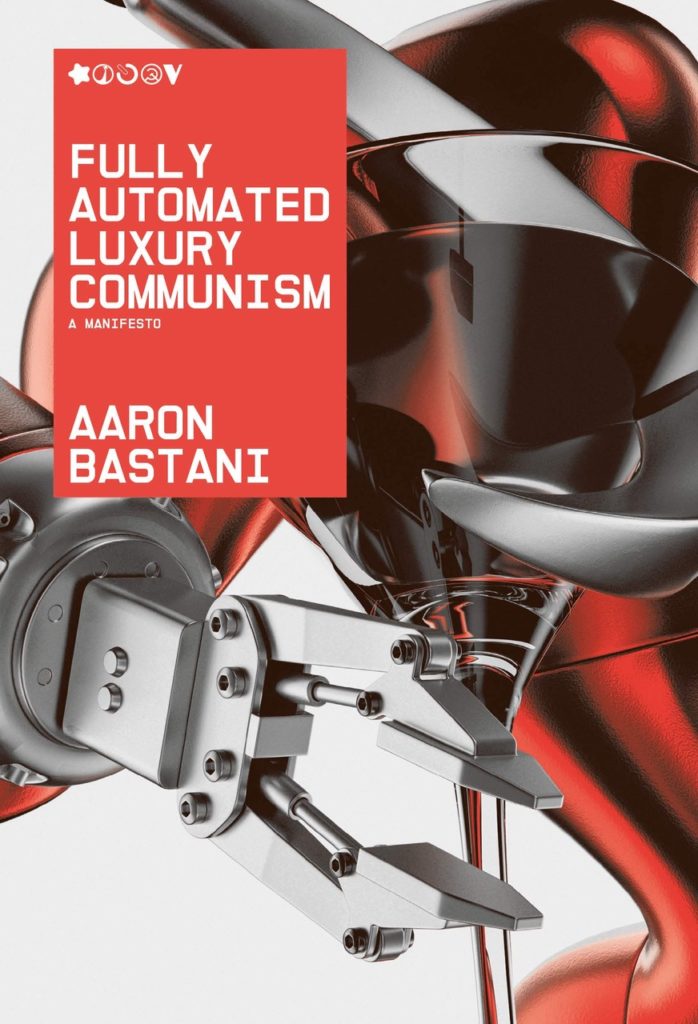
If Marxism is no longer sufficient to explain the modern world, that doesn’t mean that, as a framework of analysis, it should be made henceforth redundant. Testament to that proposition is the sharply titled, and written, Fully Automated Luxury Communism by Aaron Bastani. Full of techno-politics of an unashamedly Left complexion the book is described as ‘a manifesto’. Notwithstanding the free broadband offer, Labour still doesn’t entirely share Aaron’s, at times breathless, enthusiasm for the progressive potential of technological change. Fair enough though, modern politics needs to understand how digital technology is transforming the terrain on which we contest. An unpicking of the contradictions this generates is provided by Jamie Woodcock’s Marx at the Arcade a careful survey of video games and the politics they produce.
Another ‘unofficial’ manifesto is The Socialist Manifesto by Bhaskar Sunkara who offers up a political platform historic in inspiration, futuristic in vision, practical for the present. In a similar vein Nancy Fraser’s The Old Is Dying and the New Cannot be Born takes Gramsci’s famous dictum as a starting point to understand the twin, opposing, potentials of Left and Right populism out of the current global impasse typified by Trump and Brexit. One of the first of a very welcome new pamphlet series from Verso, Fraser’s intelligent writing is to the point and short enough to be read between canvassing sessions, leaving campaigners wanting more.
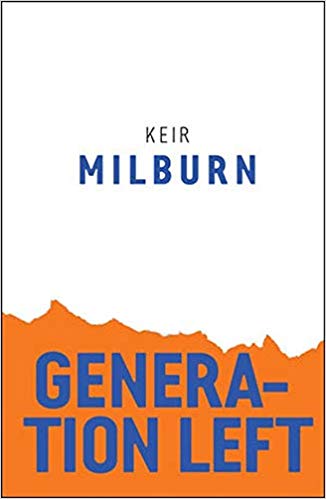
For the ‘new to be born’ demands that the ‘old’ has to be subject to critique. Stephen Duncombe describes this process as ‘reimagining politics’ which he explains in a new edition of his superb 2007 book Dream or Nightmare updated to take in the age of Trump. Such a reimagining demands an engagement with what politics means for those whose entry post-dates the 2008 financial crisis, 2019’s first and second time voters on whose support Labour is counting on so much. Keir Milburn’s Generation Left should be considered the set text for connecting with these voters’ practical ideals – this is meant as a compliment richly deserved, by the way.
And after the votes have been counted, what changes and by how much? The annual Socialist Register has taken for its 2020 theme ‘new ways of living’ with an admirably global view of the cusp between the old and new. A scary vision of how such a transition might end up is provided by Peter Fleming’s The Worst is Yet To Come, described as a post-capitalist survival guide, ranging over economic decline, societal division and environmental detonation. Oh well, it wasn’t good while it lasted. To prevent such a vision becoming a reality requires a conversational culture that enables differences of opinion to be shared. Two contrasting approaches to this are provided by Billy Bragg and Richard Seymour, yet both take a similar starting point, social media. Billy’s The Three Dimensions of Freedom champions democratisation in the face of what some have described as ‘surveillance capitalism’. While in The Twittering Machine. Richard tackles the degradation of political debate the entire social media edifice has helped bring about. In time honoured fashion we need both, institutional change and taking personal responsibility to effect that change. The importance of both approaches cannot be underestimated with elections increasingly fought as much online as on the doorstep.
Even in the heat of the campaigns we need to locate change, personal and political, in the midst of what theorists call ‘the conjunctural’, the terrain of the present. This Conjuncture, a special edition of the journal New Formations, takes this as its theme by drawing on the work of Stuart Hall to apply the theory to a wide range of what constitutes the present.
Of course any sense of this particular ‘conjuncture’ is pretty much defined by all things Brexit. But, of course, the issue and what it raises has a history too. Danny Dorling and Sally Tomlinson’s Rule Britannia: Brexit and the End of Empire makes this precise point very well; imperial nostalgia is still a powerful political mobiliser. In The People’s Flag and the Union Jack, Gerry Hassan and Eric Shaw apply the consequences of an Englishness entwined with the imperial and the martial to the enduring failure for Labour to engage with either the break-up of Britain or the consequent re-emergence of the English nation. Both are of course vital to any understanding of Brexit.
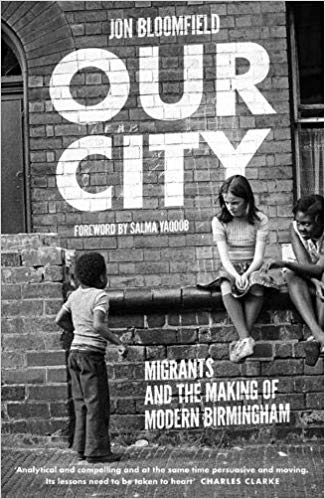
It isn’t however a crude reductionism though to suggest that Brexit must also be understood via the prism of class. Mike Carter’s All Together Now? is an epic journey of walking half the length of England, through the deindustrialised communities almost entirely disconnected from the body politic; what kind of answer are the parties providing to their howls of rage? In a similar vein Our City by Jon Bloomfield is a incredibly powerful testimony of how race and migration shapes the modern British city, in this case Birmingham, establishing grounds for both unity and division, the choice of which is entirely political. Riding for Deliveroo the debut book from Callum Cant is another potent rejoinder to those who would reduce the entire general election to all things Brexit. Callum’s spirited case for a resistance to the ‘new economy’ should be more than sufficient to convince us that this election is about much more than Brexit.
If an election shaped by the Brexit Impasse fails to respond to these many and varied howls of rage, the future will be anything but progressive. Cas Mudde’s The Far Right Today connects such an understanding to Brexit’s transatlantic equivalent, the 2016 triumph of Trumpism. A triumph framed by a populist racism coupled with authoritarian populism that has its origins in, and message projected by, the alt-right. The New Authoritarians by David Renton is an important, new, analysis of this phenomenon that distinguishes this radicalised, racist Right from more traditional versions of classic fascism. All the more dangerous for this shift. As David argues, our opposition and offering of alternatives is strengthened not weakened by understanding the nature and appeal of what we are up against. Casting votes will not be enough.
The biggest issue in the election surely should be the Climate Emergency. This will be the shape of politics to come so its useful to have a handbook for future decades, whoever is in government. You won’t find a better book than Paul Mason’s latest, Clear Bright Future, which looks at past and present crises, going beyond any conventional electoral focus and mapping out what a radical future might look like. A more conventional response is provided by System Change not Climate Change edited by Martin Empson. Conventional in the sense that most of the contributors derive their politics from Marxism. It is not to deride the entire legacy of this most revolutionary of ideologies to recognise that firstly its contribution to our understanding of the environmental crisis is negligible, and secondly other, revolutionary, ideas are serving to not only make up for that absence but inspiring millions to action. A combination superbly personified by Greta Thunberg. Greta’s short book No One is Too Small to Make A Difference would be my pick as the perfect 2019 Manifesto. And as for a campaign guide, Extinction Rebellion’s handbook This is Not A Drill showcases the scale of audacity, action and creative resistance this campaign has generated in such a short time. But however imaginative, however creative, in the same way that voting is not enough, nor will blocking roads be sufficient if the Climate Emergency is to be reversed. We need ideas that become policies and in turn become government action. Labour putting a Green Industrial Revolution at the centre of its message is a hugely important development in this regard, though Katherine Trebeck and Jeremy Williams’ The Economics of Arrival indicate how far traditional, including Left, governments need to travel to produce a society that is sustainable.
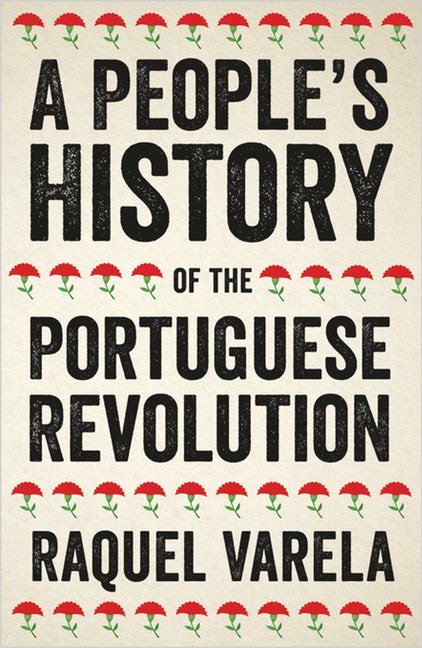
Despite the claims of politicians on the stump in politics, nothing is ever entirely ‘new’. It pays to take more than a moment to pay heed to the past. Portugal 1974 is one such instance, the most potent example yet of revolutionary change where we’ve become accustomed to least expect it, Western Europe. An episode brilliantly recalled by Raquel Varela’s new account, A People’s History of the Portuguese Revolution. Closer to home the new edition of Rebel Footprints by David Rosenberg is a guide to the streets and other parts of London that carry with them a radical past. A history lesson on the move, what a way, once those canvassing sessions are over, to spend a Sunday afternoon after 12th December, with David’s book in hand, strolling for socialism. Anti-racism is a strand that runs through much of this past, or at least it should. Evan Smith’s history British Communism and the Politics of Race may focus on one particular part of the Left and its changing relationship to anti-racism, yet the insights provide a much broader perspective on what makes, and what doesn’t, an anti-racist Labour Party. To keep up to date (sic) more broadly with the historiography of communism there’s no better source than the journal Twentieth Century Communism, the latest issue is testament to its customary eclectic mix, Eric Hobsbawm, the Brothers Grimm and the Communist Party of Cyprus.
A range of new titles offer an impressive revisiting of how to construct a political culture. Too little has been done on this front by Labour since Jeremy Corbyn became leader. In the rush and tumble of the campaign there’s Fck Boris and Grime4Corbyn but what will remain of this after the polling stations close? If 2017 is anything to go by, not a lot. Beautifully produced the songbook Working Class Heroes: A History of Struggle in Song edited by Mat Callahan and Yvonne Moore provides like-minded artefacts from the past to inspire and remind us that a radical political cute is not only necessary but possible, and the beauty of this is that with instrument in hand the musical notation can be turned into a weapon of change here and now. Visual Dissent is an extraordinarily vivid collected works from the much-celebrated photomontage artist Peter Kennard, if only more of the Left took note of Peter’s ability to communicate with wit, humour and impact. The LGBT movement is never backward at coming forward with communicating its hopes, ambitions, demands for change. The origins of that political, and cultural imperative are beautifully chronicled in the photos and accompanying essays from Stonewall 1969 which comprise Fred W. McDarrah’s Pride: Photographs after Stonewall. And as for a soundtrack? In Don’t Look Back in Anger Daniel Rachel chronicles the rise and fall of Cool Britannia, a music, that just like the politics of the same era, the 1990s and noughties, promised so much but in the end didn’t live up to this promise. Better luck this time, eh?

And as for when the cut and thrust of the campaign serves to get a tad blunt and tawdry I recommend a turn to How to be a Vegan and Keep your Friends from Annie Nichols. Individual lifestyle choices aren’t sufficient in themselves, we need governments to effect change on the scale the Climate Emergency requires, yet reinventing our diet and ‘keeping our friends’ provides more than an inkling of both what is possible and necessary. Tasty too. Who knows what the future might hold after 12th December, we can but dream, with many sacrificing evenings and weekends to help make it happen. A very welcome return therefore of the Big Red Diary to help plan the first year of supporting, resisting, or maybe even a mix of the two, a new government.
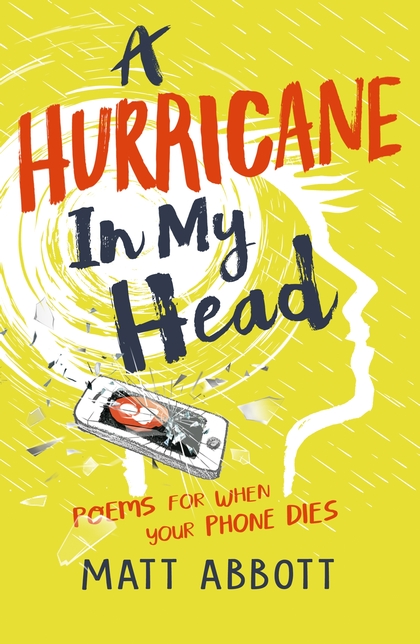
And my book of the General Election campaign? Matt Abbott’s debut poetry collection A Hurricane in my Head: Poems for When Your Phone Dies. Poetry? And these are for children too?! What’s that got to do with 12th December, eh? Heaps. This is a once-in-a-generation vote, not only to determine Britain’s relationship with Europe via the EU but also the scale of ambition to tackle the Climate Emergency. On both fronts those of us of a certain age will struggle on, learn to live with the dire consequences if the worst possible result imaginable materialises and Johnson is back at Number Ten come the morning of 13th December. But those at secondary school, the age Matt’s book is primarily aimed at, will have to live with the fallout for their adolescence. A Johnson victory moreover will cement the popular shift to the Right, institutionalise its grip on power for a considerable time to come, with those at school now facing the grimmest possible future. At the very moment the Climate Emergency needs reversing most urgently the least will be being done to stop it. The school climate strikers symbolise an entirely different discourse, hope on the move, pinning the blame for the dire prospects for their future squarely on those old enough to know better. Hope, and Matt’s poems capture this potential superbly with a line in humour that the grown-ups will smile along to warmly. 12th December, for those not yet old enough to vote is just the beginning and this is their book.
Note: No links in this review are to Amazon, if you can avoid buying from the corporate tax-dodgers please do.
Mark Perryman is the co-founder of the self-styled ‘sporting outfitters of intellectual distinction,’ aka Philosophy Football.
